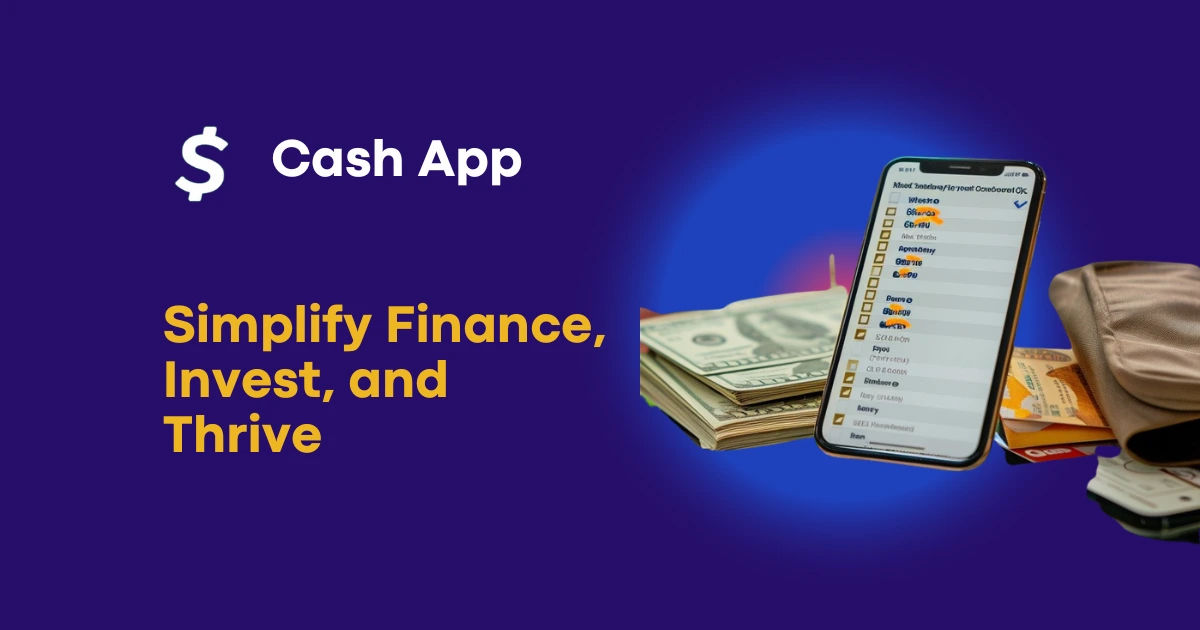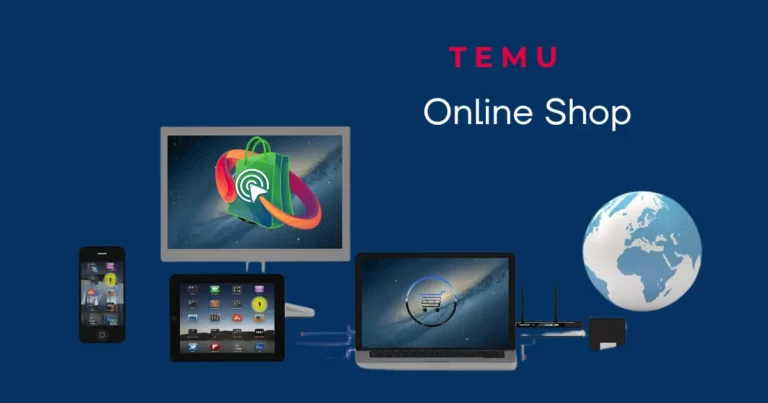Exploring Cash App: Your Best Guide to Money Transfer, Investing, and Tax Payments

Exploring Cash App, we find that it has become one of the most widely used financial applications in the United States, making financial transactions simpler and more efficient for millions. Developed by Block, Inc. (formerly Square, Inc.), it enables users to send and receive money, invest in stocks and Bitcoin, and file taxes conveniently from their smartphones. As of 2024, over 53 million active users benefit from its intuitive interface and range of features, making it indispensable for both personal and business purposes (source: Block Inc. Financial Report 2024). This comprehensive guide covers Cash App’s setup, key features, security practices, and how it stacks up against competitors.
Table of Contents
1. What is Cash App?
Exploring Cash App: Launched in 2013 as a straightforward peer-to-peer payment platform, Cash App has since evolved into a comprehensive financial tool, offering features like investing, cryptocurrency trading, tax filing, and a customizable debit card. Its continued innovation and ease of use have secured its position as a leading player in the financial technology sector.
Key Milestones:
- 2013: Launch of Cash App for simple money transfers.
- 2018: Introduction of Bitcoin trading capabilities.
- 2019: Commission-free stock trading launched with Cash App Investing.
- 2021: Cash App Taxes debuted, simplifying tax filing for free.
- 2024: Over 53 million active users, continuing to expand.

2. Setting Up Your Cash App Account
Getting started with Cash App is easy and only takes a few minutes. Here’s how:
- Download: The app is free on both iOS and Android platforms.
- Sign Up: Use your phone number or email, and verify with the provided code.
- Link a Bank Account: Connect your debit card or bank account for seamless transactions.
- Verify Your Identity: Provide your name, date of birth, and Social Security number’s last four digits.
- Set Up Security: Activate two-factor authentication and use a PIN or biometric lock for extra protection.
Table 1: Cash App Setup and Security Features
| Step | Details |
|---|---|
| Download | Available on iOS and Android |
| Register | Sign up with phone or email; verify |
| Link Bank Account | Connect your debit card or bank |
| Set Security | Two-factor authentication, PIN, or biometrics |
Security Tip: Use a unique, strong password and enable account activity notifications.
3. Core Features of Cash App
Cash App stands out for its wide range of features, each designed to make financial management easy and efficient.
A. Peer-to-Peer Money Transfers
Cash App allows for quick and simple money transfers using a $Cashtag, email, or phone number.
- Sending Money: Enter the desired amount, select the recipient, and confirm. Transfers are instant (with a fee) or free when using standard deposits, which take 1-3 business days.
- Receiving Money: Incoming payments appear in your balance, and you can transfer them to your bank account or keep them in-app for easy use.
- Splitting Bills: Perfect for splitting rent, dining out, or group gifts. The app allows easy requests to ensure everyone contributes their share.
Transaction Limits: Unverified accounts have lower limits, while verified accounts can send up to $7,500 weekly and receive unlimited amounts.
B. Investing with Cash App
Cash App Investing democratizes stock market access by allowing users to invest with minimal amounts.
- Fractional Shares: Invest in top companies like Tesla or Google with as little as $1.
- Educational Resources: New investors can access guides and articles that explain investment basics.
- Investment Goals: Users can set and track goals, monitoring portfolio performance over time.
Risk Warning: The stock market is volatile; thorough research is recommended before investing.
Table 2: Popular Stocks on Cash App (2024)
| Stock | Performance (2024) | Return |
|---|---|---|
| Tesla (TSLA) | +15% | High Volatility |
| Apple (AAPL) | +8% | Steady Growth |
| Microsoft (MSFT) | +12% | Stable Investment |
C. Bitcoin Transactions
The app’s cryptocurrency feature allows users to buy, sell, and hold Bitcoin easily.
- Buying and Selling: Trade Bitcoin with just a few taps, complete with real-time price updates.
- Sending Bitcoin: Transfer Bitcoin to friends or external wallets securely.
- Bitcoin Boosts: Periodically, the app offers Bitcoin rewards to encourage cryptocurrency use.
Security Measures: Cash App implements robust security for Bitcoin storage; users should adopt strong practices, like using a hardware wallet for large holdings.
4. Cash App Taxes
Filing taxes becomes hassle-free with Cash App Taxes, a free service that supports various tax forms.
- Supported Forms: Includes W-2s, 1099s, and self-employment income, ideal for employees and freelancers.
- Tax Refunds: Refunds can be deposited directly into your Cash App balance, accessible immediately.
Tips for Using Cash App Taxes:
- Organize Documents: Keep tax-related paperwork, like W-2s and receipts, in one place.
- Double-Check Information: Ensure accuracy to avoid errors and potential audits.
- Maximize Deductions: Cash App offers guidance on claiming deductions like education or charitable donations.
5. Additional Features and Perks
Cash Card Features
A customizable debit card linked to your balance, the Cash Card provides flexibility for everyday transactions.
- Cash Boosts: Users can activate discounts at select restaurants and stores. Examples include 10% off coffee or $5 off grocery purchases.
- Easy Activation: Order and personalize the card directly in the app.
Pro Tip: Regularly check the app for new Boost offers to maximize savings.
6. Cash App for Businesses
Cash App isn’t just for personal finance; it caters to small businesses and freelancers with specific features.
- Lower Transaction Fees: A cost-effective alternative to traditional payment processors.
- Instant Deposits: Payments can be transferred instantly, subject to a small fee.
- Professional Invoicing: Businesses can create and send invoices easily, streamlining payment tracking.
Use Cases
- Freelancers: Writers, designers, and service providers use Cash App for quick payments.
- Event Vendors: Accept payments at markets or pop-up events seamlessly.
Comparison with Traditional Banking
| Feature | Cash App for Business | Traditional Banking |
|---|---|---|
| Transaction Fees | Lower fees | Higher fees |
| Payment Speed | Instant or 1-3 days | 2-5 business days |
| Account Setup | Quick and easy | Lengthy documentation |
7. Safety and Security Considerations
Cash App prioritizes user safety, but personal vigilance remains essential.
Security Features:
- Encryption: All data between your device and Cash App servers is encrypted.
- Fraud Monitoring: Accounts are monitored for suspicious activity, with measures to block unauthorized access.
- Authentication: Options include two-factor authentication and biometric locks.
Common Scams to Avoid:
- Phishing: Double-check emails and texts claiming to be from Cash App.
- Impersonation: Cash App support will never ask for your sign-in code or PIN.
- Payment Scams: Only send money to verified contacts.
Prevention Tips: Use strong, unique passwords, enable notifications, and regularly review your account activity.
8. Pros and Cons of Cash App
Every app has its strengths and drawbacks. Here’s a breakdown of Cash App:
Pros
- Ease of Use: Intuitive for first-time users.
- Comprehensive Services: Combines money transfers, investments, and taxes in one app.
- Low Fees: Free basic transactions, with fees only for premium services.
- Cash Card Savings: Discounts at participating retailers through Cash Boosts.
Cons
- Limited International Use: Restricted to the USA and UK.
- Transaction Limits: Unverified accounts face sending limits.
- Fraud Risks: Despite strong security, scams are common.
- No Interest on Balances: Funds stored in Cash App do not earn interest.
Table 3: Pros and Cons of Cash App
| Pros | Cons |
|---|---|
| Easy to Use | Limited International Use |
| Free Basic Transactions | Fees for Instant Transfers |
| Investment and Bitcoin Options | Risk of Scams and Fraud |
| Cash Card with Boosts | No Interest on Account Balance |
9. Benchmarking Cash App Against Competitors
To better understand Cash App’s value, let’s compare it to other leading financial apps like Venmo, PayPal, Zelle, and Robinhood.

A. Cash App vs. Venmo
Both are popular peer-to-peer payment services, but they differ in features.
| Feature | Cash App | Venmo |
|---|---|---|
| Money Transfer | Instant or free standard transfers | Instant or free standard transfers |
| Investment Options | Stocks and Bitcoin | None |
| Debit Card | Cash Card with Boosts | Venmo Card |
| Social Features | Minimal social interaction | Public feed of transactions |
| International Use | Limited to USA and UK | USA only |
Verdict: Choose Cash App for investments and Bitcoin; Venmo is better for social sharing.
B. Cash App vs. PayPal
PayPal provides more robust features for international and business transactions.
| Feature | Cash App | PayPal |
|---|---|---|
| Money Transfer | Simple peer-to-peer | Domestic and international |
| Business Payments | Limited business tools | Extensive merchant features |
| Investment Options | Stocks and Bitcoin | Cryptocurrency (no stock trading) |
| International Use | Limited | Global |
| Fees | Lower fees for personal use | Higher fees for currency conversion |
Verdict: PayPal is better for international use; Cash App is simpler for domestic transactions.
C. Cash App vs. Zelle
Zelle focuses on direct bank-to-bank transfers, integrated with many US banks.
| Feature | Cash App | Zelle |
|---|---|---|
| Money Transfer | Transfers using $Cashtag | Instant bank transfers |
| Speed | Instant with fees, 1-3 days otherwise | Typically instant and fee-free |
| Bank Integration | Requires linking a debit or bank card | Directly integrated with banks |
| Investment Options | Stocks and Bitcoin | None |
Verdict: Zelle is ideal for direct, fee-free bank transfers; Cash App offers more features.
D. Cash App vs. Robinhood
Robinhood focuses on investment, with more tools for active traders.
| Feature | Cash App | Robinhood |
|---|---|---|
| Stock Trading | Simple interface for beginners | Advanced tools and options |
| Cryptocurrency | Bitcoin only | Multiple cryptocurrencies |
| Investment Education | Basic resources | Extensive educational content |
| Additional Features | Money transfers, Cash Card | Options and margin trading |
Verdict: Robinhood is for serious investors; Cash App is simpler and integrates money transfer features.
Benchmark Summary
- Cash App: Best for combining transfers, investments, and simple business payments.
- Venmo: Ideal for social payments among friends.
- PayPal: Excellent for international and business transactions.
- Zelle: Fast, fee-free bank transfers for domestic use.
- Robinhood: Comprehensive investment platform for active traders.
10. Conclusion
Cash App has revolutionized the landscape of personal finance, becoming an essential tool for millions of Americans by offering a comprehensive suite of features that simplify everyday financial activities. Whether you’re looking to split a dinner bill with friends, invest in the stock market, or file your taxes for free, Cash App has made these processes more accessible, efficient, and secure.
Its user-friendly design caters to a broad audience, from tech-savvy millennials to small business owners who benefit from its streamlined payment processing. The ability to invest in stocks or trade Bitcoin with just a few taps has opened up financial markets to those who might not have previously participated, democratizing access to investment opportunities. Additionally, the introduction of features like the customizable Cash Card and Cash Boosts provides tangible perks that appeal to everyday users, enhancing the app’s attractiveness and utility.
However, as with any financial service, Cash App comes with its limitations and risks. The restricted international use and potential for fraud and scams mean that users must remain vigilant and proactive about security measures. While the app provides strong security features, such as encryption and two-factor authentication, users must also adopt safe practices, like monitoring account activity and only transacting with trusted parties.
Comparing Cash App to other major financial apps highlights its unique blend of simplicity and versatility. While it may not replace platforms like PayPal for international transactions or Robinhood for in-depth investment tools, Cash App offers a balanced approach that covers a wide range of financial needs in one convenient application. Its continued innovation and growing user base suggest that Cash App will remain a significant player in the financial technology landscape for years to come.
Cash App has positioned itself as a frontrunner, continually evolving to meet the needs of its users. As we move further into a cashless society, understanding and leveraging tools like Cash App can empower individuals to manage their money more effectively, invest for the future, and simplify financial complexities. By staying informed and using Cash App wisely, you can maximize its benefits and navigate the financial world with greater ease and confidence.







One Comment
Comments are closed.